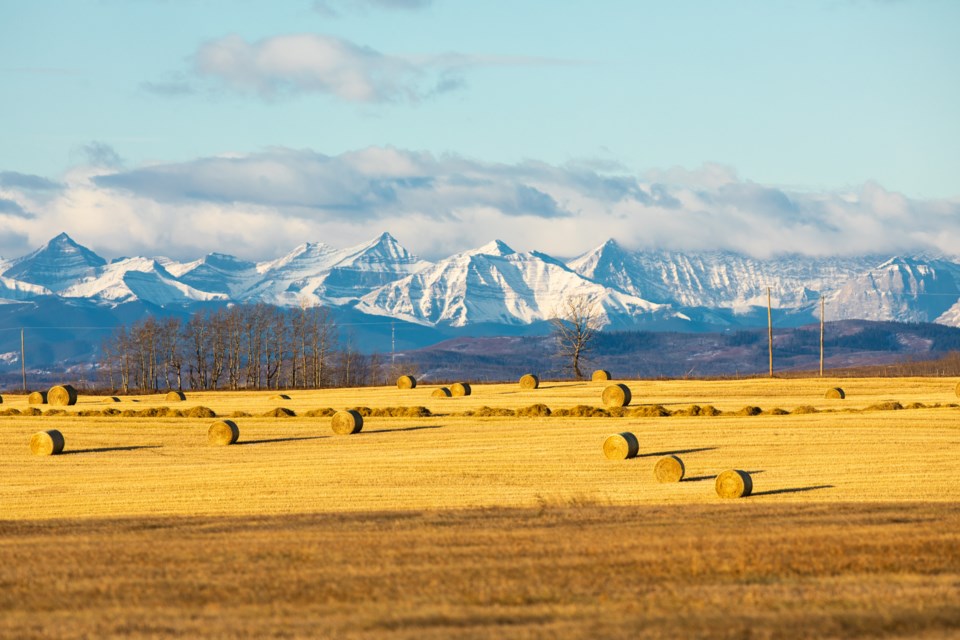Foothills councillors are expressing their concern with a lack of policy around coal mining in southern Alberta.
Council agreed to draft a letter to the provincial government regarding the controversial application for the Grassy Mountain Coal Project, an $800-million coal mining operation proposed in the Crowsnest Pass by Benga Mining Ltd., a subsidiary of Australian parent company Riversdale Resources.
Coun. Delilah Miller said there’s potential impact for Kananaskis as well, just beyond the County’s borders, as some sites have been leased or purchased by resource companies for exploration.
“It is right on our doorstep,” said Miller.
She said residents have been in contact with councillors with concerns over the project, and while Foothills doesn’t oppose coal mining in general, its concerns lie more with a lack of consultation and policy to protect the environment.
The Coal Development Policy for Alberta, first published in 1976, was rescinded by the Province effective June 1, 2020. Its scope included a land-use classification system dividing Alberta into four categories that classified where and how coal leasing, exploration and development could occur.
According to the Province, the policy became obsolete over the last 45 years due to regulatory, policy and planning advancements in the industry. With the policy now rescinded, all projects will continue to filter through the Alberta Energy Regulator (AER) review process, which looks at economic, social and environmental impacts of each proposal.
The Province states former Category 1 lands will continue to be protected from coal leasing, exploration and development on public lands, but it will not infringe on private land or freehold mineral rights.
“This will support critical watersheds, biodiversity (including numerous species at risk), as well as recreation and tourism activities along the eastern slopes of Alberta’s Rocky Mountains,” the Alberta government website states. “Leasing outside of these areas will be subject to the same land use planning and management rules that apply to all other resources and industrial uses.”
Miller said operating with the understanding the AER is managing proposals and assessing risk isn’t enough. There should have been more input from southern Alberta residents impacted directly by the proposed operations and the policy should be government-regulated, she said.
The former Coal Policy, while outdated, could have remained intact but been updated to reflect current practices, she said, adding that without it, open-pit mining can now take place in more sensitive areas, which is where much of the concern of Grassy Mountain lies.
“We’re not saying no to coal, we’re just saying the public consultation wasn’t done, the coal policy needs to be brought into legislation so that in future we have got a government that can’t just dismiss a coal policy and go ahead and do what they want with open-pit mining,” said Miller. “I think it’s imperative that we step back and we pause on this.”
Also important to include in legislation is a clean-up policy and hefty bonds, so mining companies are on the hook to ensure the area is properly-cleaned once coal extraction is complete. Otherwise, those costs could be passed on to Alberta municipalities, she said.
Reeve Suzanne Oel said her biggest issue with the mining proposal is the potential for water pollution, as well as the use of the ministerial reserve of water for production, which could reduce the stream levels of surrounding creeks and rivers.
“There has been incredible water purification going on with other coal removal and apparently it’s not doing the job,” said Oel. “This is a watershed location, so I think that’s really where the crux is here.
“Some of the other locations aren’t right a part of the headwaters and I think that’s the issue here is this incredible potential for contamination.”
She requested concerns of heavy metals and environmental impact be cited in the letter to the Province as well.
Coun. R.D. McHugh agreed with outlining environmental concerns in a letter, but also said he was wary of coming across as anti-mining. It’s an important industry to help Alberta dig out of its economic hole, he said.
“This is a resource-rich country, and we export products to other countries – that’s pretty much what we’ve done since our inception,” said McHugh. “If it can be done responsibly, I don’t think we can object to it or we never get out of the financial debt we’re in.”
He added there has been coal-mining in Alberta for decades and in places like Grande Cache there haven’t been concerns raised over heavy metals or contamination.
Oel said to-date letters have also been drafted by the City of Lethbridge, which cites concerns over water quality, and Pincher Creek.
The period for public submission closed earlier this month, with a virtual hearing on Jan. 15, she said.
High River town council has also voiced its displeasure with the potential mining in southern Alberta.
A review panel from AER will submit its recommendation for approval or denial of the proposed project by June 18, at which time the Province has 150 days to announce its decision.




